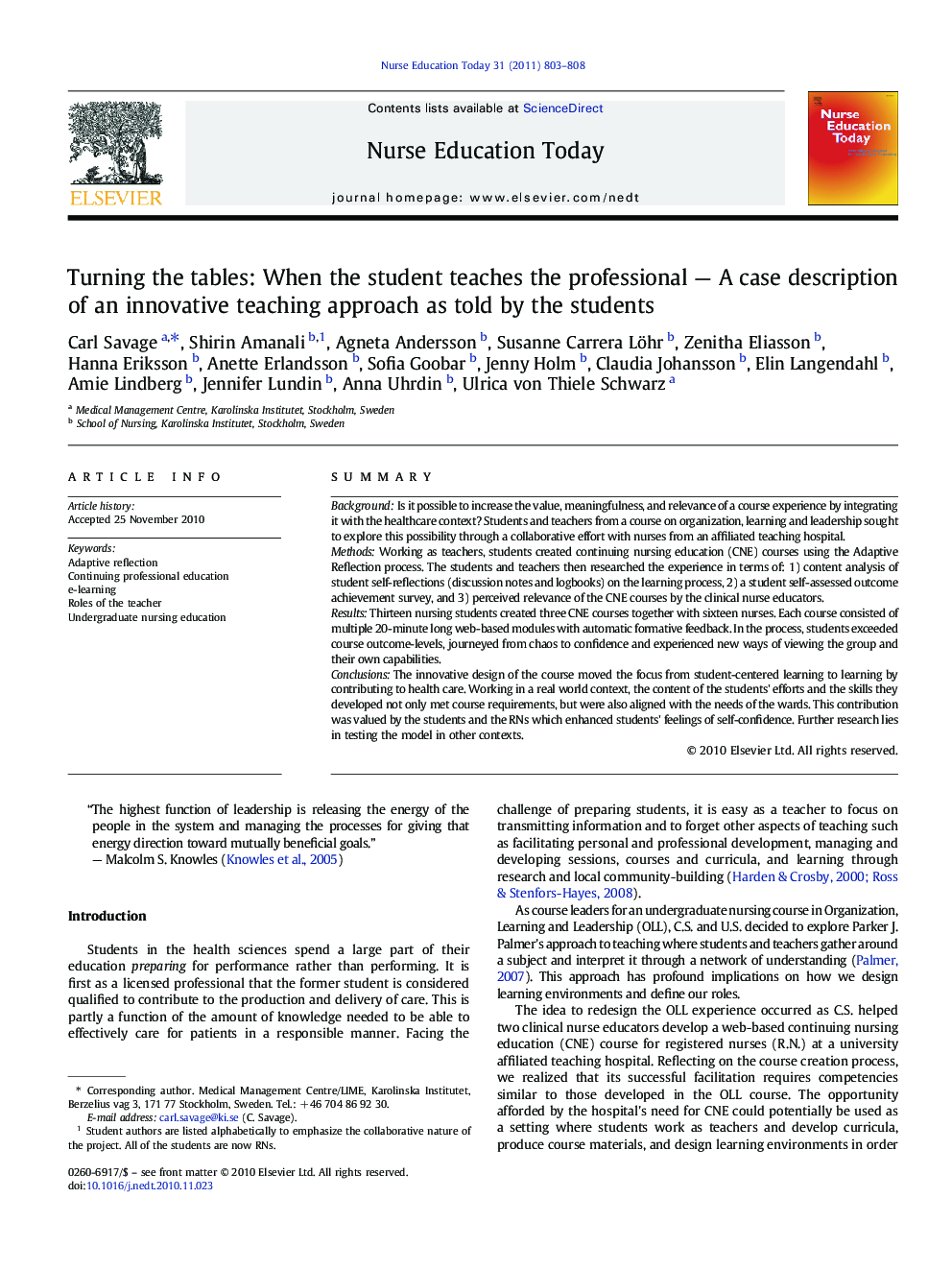| Article ID | Journal | Published Year | Pages | File Type |
|---|---|---|---|---|
| 369249 | Nurse Education Today | 2011 | 6 Pages |
SummaryBackgroundIs it possible to increase the value, meaningfulness, and relevance of a course experience by integrating it with the healthcare context? Students and teachers from a course on organization, learning and leadership sought to explore this possibility through a collaborative effort with nurses from an affiliated teaching hospital.MethodsWorking as teachers, students created continuing nursing education (CNE) courses using the Adaptive Reflection process. The students and teachers then researched the experience in terms of: 1) content analysis of student self-reflections (discussion notes and logbooks) on the learning process, 2) a student self-assessed outcome achievement survey, and 3) perceived relevance of the CNE courses by the clinical nurse educators.ResultsThirteen nursing students created three CNE courses together with sixteen nurses. Each course consisted of multiple 20-minute long web-based modules with automatic formative feedback. In the process, students exceeded course outcome-levels, journeyed from chaos to confidence and experienced new ways of viewing the group and their own capabilities.ConclusionsThe innovative design of the course moved the focus from student-centered learning to learning by contributing to health care. Working in a real world context, the content of the students' efforts and the skills they developed not only met course requirements, but were also aligned with the needs of the wards. This contribution was valued by the students and the RNs which enhanced students' feelings of self-confidence. Further research lies in testing the model in other contexts.
